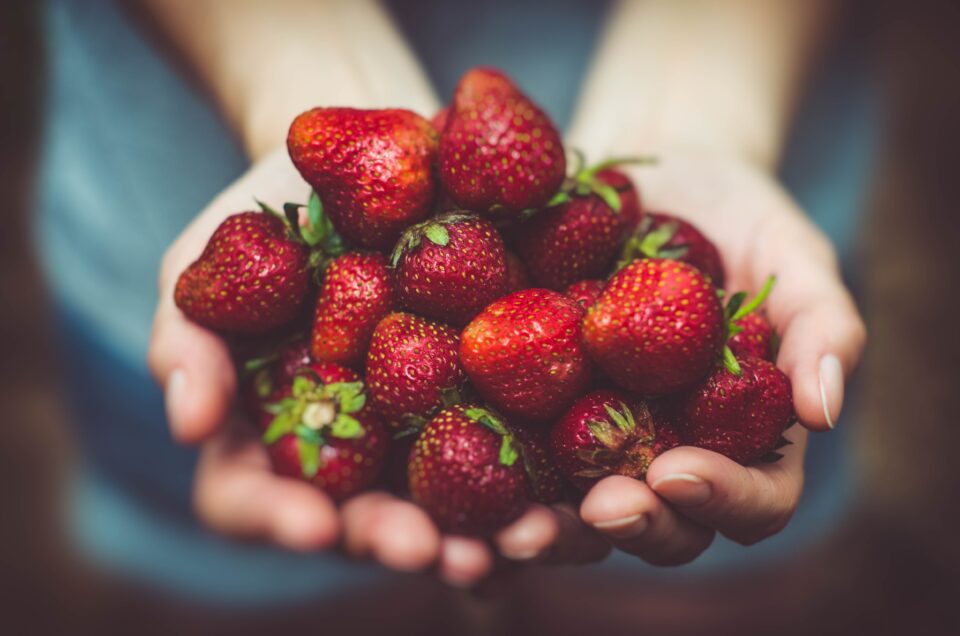It’s that time of the year when you start questioning why you ever registered for that course in the first place. Final assignment deadlines, exams plus the never-ending dissertation are enough to drive anyone crazy. And sleep? What is sleep when the pressure is on! In the quest to make the most of the 24 hours in a day, it’s easy to skip meals for a few more minutes of revision or to try and stay up as late as possible.
Unsurprisingly, good food and rest are absolutely vital especially so during exam season. Nutrition experts say that eating well can make a real difference to your revision game and these are some of the brain-boosting foods and drinks they recommend.
Brain-boosting foods and drinks
Water
Keeping your body hydrated is one sure way of staying awake and alert. Around 60 percent of the body is made up of water, and human blood is 90 percent water so to function properly, all the cells and organs of the body need water. Dehydration can affect brain structure and function and prolonged dehydration can lead to problems with thinking and reasoning. Have a water bottle by your desk and refill it throughout the day or night.

Green and Herbal Teas
Most of us start the day with a cup of coffee to jumpstart our system as we get ready. But have you considered green tea instead? Switching to a herbal or green tea (or at least incorporating them into you revision diet) will improve your brain function.
There are numerous types of herbal teas, all with their unique benefits. Some of the most popular ones include:
- Chamomile tea – helps to reduce menstrual pain and muscle spasms, improve sleep and relaxation, and reduces stress
- Rooibos – improves blood pressure and circulation, boosts good cholesterol while lowering bad cholesterol, keeps hair strong and skin healthy, and provides relief from allergies
- Peppermint – contains menthol, which can soothe an upset stomach and serve as a cure for constipation, irritable bowel syndrome, and motion sickness. This tea variety also offers pain relief from tension headaches and migraines.
- Ginger – Helps to fight against morning sickness, can be used to treat chronic indigestion, and helps to relieve joint pain caused by osteoarthritis
- Hibiscus – Lowers blood pressure and fat levels, improves overall liver health, can stave off cravings for unhealthy sweets, and may prevent the formation of kidney stones
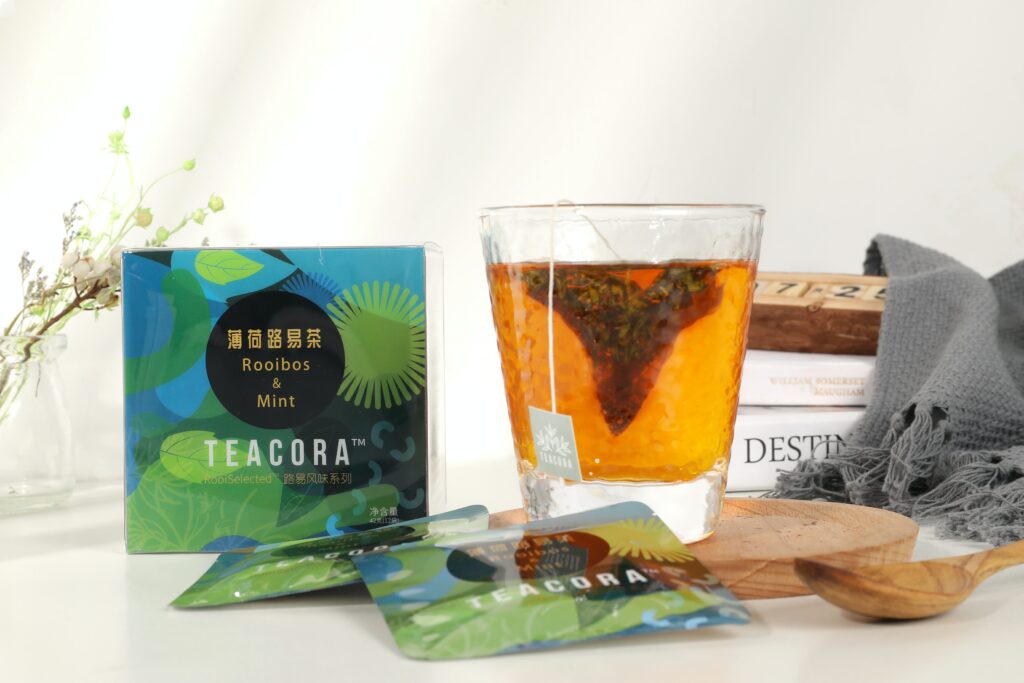
Nuts and Seeds
When you find yourself craving a snack or just something to chew on, make sure you’re reaching for a bag of nuts or seeds. Apart from being portable and versatile, nuts are packed with nutrients that are essential for brain health, including vitamin E and zinc.
They are concentrated sources of healthy fat, protein, and fiber and will keep you fueled up for a study session. Seeds are also rich in vitamins and minerals that the body needs to function at peak performance. There’s such a variety of seeds that can be incorporated into different recipes, from breakfast to dinner.
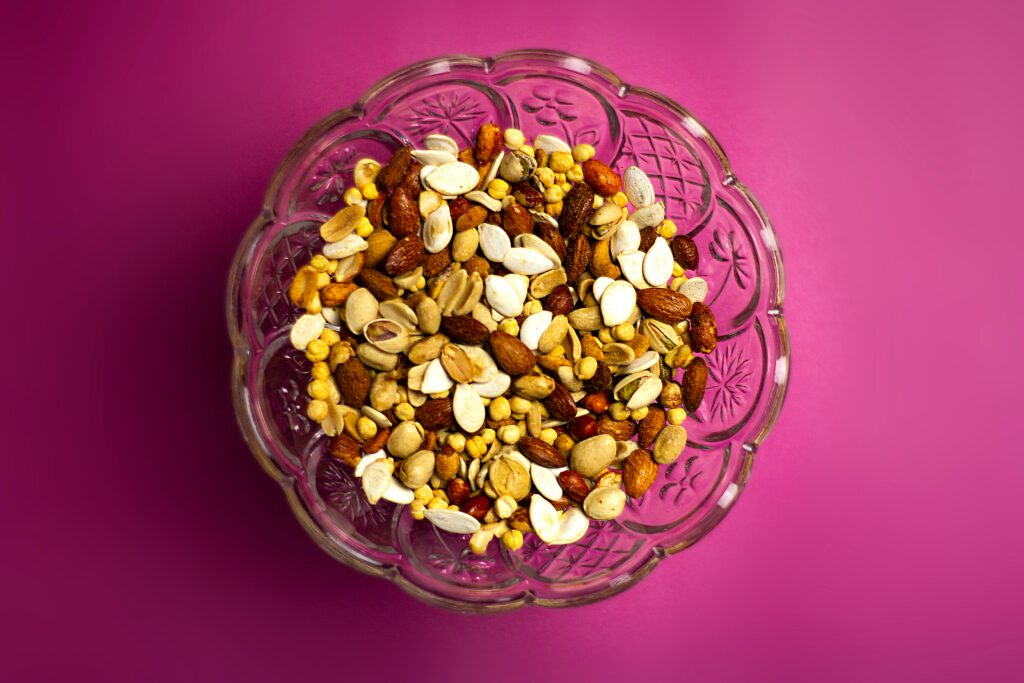
Fresh Fruit
The closer to nature, the better for your health. Adding fruit to your revision diet means having a healthy option for breakfast, a snack, or dessert. Most fruits are sweet and ready-to-eat which means less time standing by the stove (or microwave). Fruits are naturally low in fat, calories and can protect you from viruses and certain illnesses. They also contain essential nutrients that many people don’t get enough of, such as potassium, dietary fiber, Vitamin C, and folate.
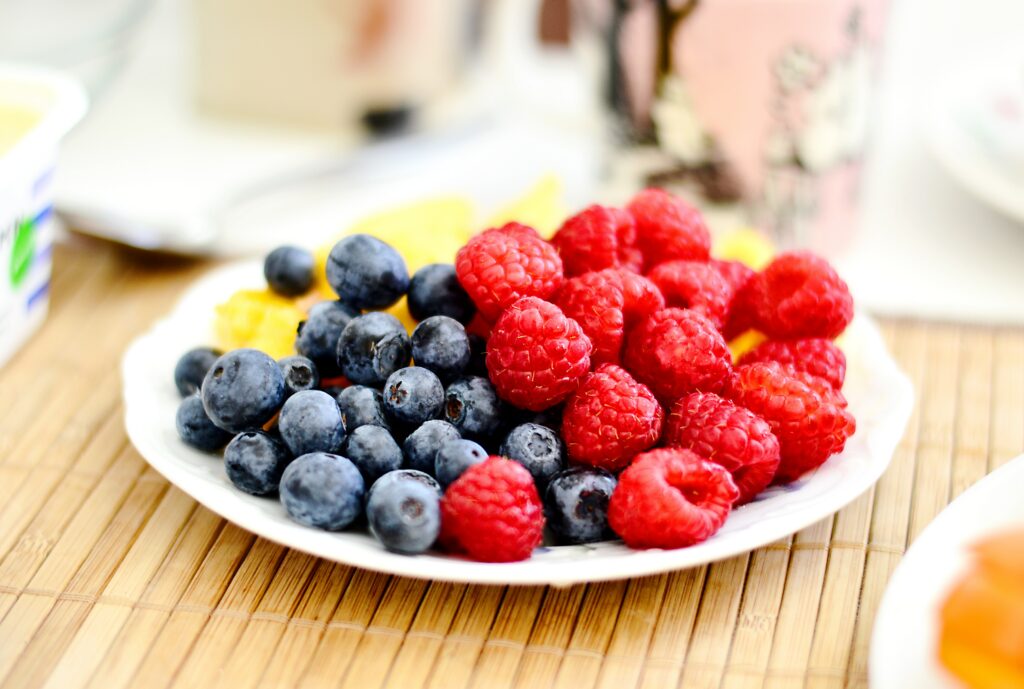
Hummus
Hummus is an incredibly popular Middle Eastern dip and spread which is typically made by blending chickpeas (garbanzo beans), tahini (ground sesame seeds), olive oil, lemon juice, and garlic. Not only is it delicious but humus is a great source of plant-based protein and a host of energy-boosting vitamins and minerals (Manganese, Copper, Folate, Magnesium, Phosphorus, Iron, Zinc, Thiamin, Vitamin B6, Potassium).
If you can include some of these foods in a healthy, balanced diet during your exams, you’ll be well on the way to getting the grades you want. In addition to eating well, make sure you get plenty of sleep, and don’t over-work yourself – maintaining a healthy social life is just as important as revision.
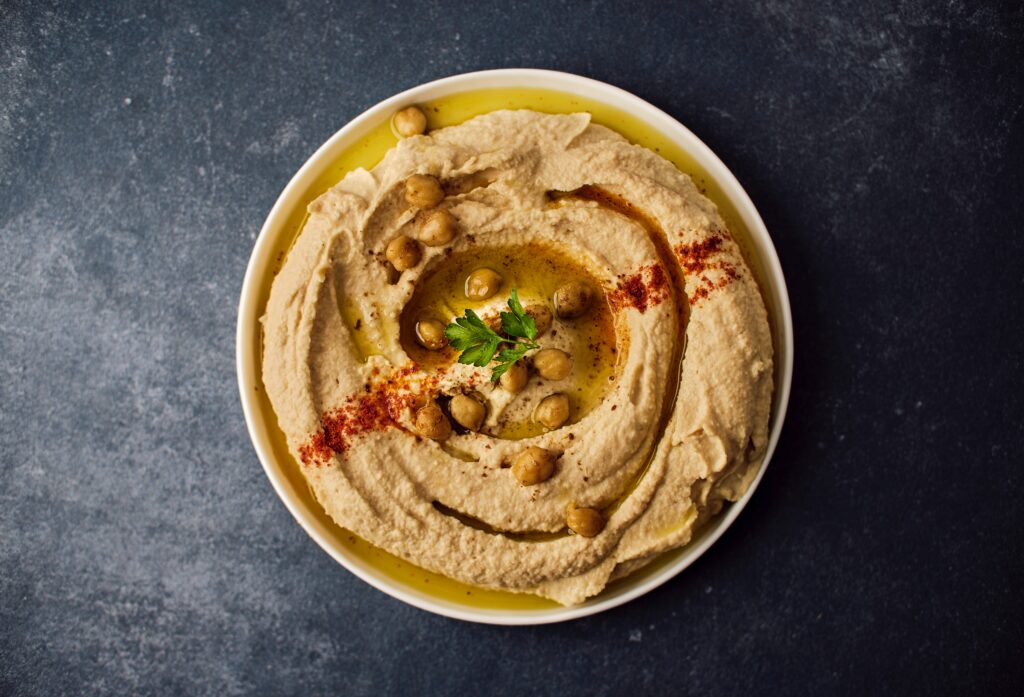
Have you also read these articles?

